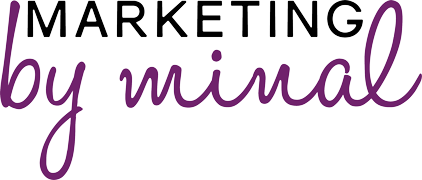5 incredibly useful communications tips for small businesses
“Communication: the imparting or exchanging of information by speaking, writing, or using some other medium.”
I thought I’d start this blog post with a definition. As the definition says, we communicate in a variety of ways. The reason I thought it important to start with a definition is that communication is so important when it comes to running a business. Especially when it comes to marketing. Get it wrong and your marketing has, at best, mediocre results. Get it right and your products or services almost sell themselves! To make sure you get the latter result, I’m going to share five communication tips with you.
Put yourself in your readers’ shoes
Have you ever had a conversation with a friend and you suddenly realised your friend didn’t understand what you were saying? Even though you were standing right there in front of them, they still didn’t receive the message you were sending them. Now think about the ways you communicate with your audiences for your business. You won’t be able to rely on face-to-face communication all the time. So, putting yourself in their shoes when using email, Twitter, your website or in a brochure is important. Something you might think is simple to understand might prove to be difficult for your readers. This is because, in your head, you know what you’re trying to say. That’s why you have to get yourself out of your head and into your readers’ shoes.
Tip: ask someone to read longer pieces of text before you publish them. Having a fresh pair of eyes looking at what you’ve written will bring up any issues and you’ll have time to correct them.
Write as if you’re talking to one person
Someone I used to work with told me to do this. You know what? It makes such a difference. So, I imagine I’m talking to one of my most engaged readers, let’s call her Nisha. Now, when I write my blog posts or newsletters, I do it as if I were talking to Nisha. It takes the stuffiness out of my language and it gives me a point of focus for my writing. Find your own Nisha and make sure you’re focusing on that one person when you write. Whether it’s for a blog post or for a Facebook ad, ask yourself: “Would Nisha understand this?”
Tip: find your Nisha by looking at your best customer or your most engaged reader or fan on social media.
Steer clear of jargon
“We’ll monitor your CTRs and ensure we’re achieving all your KPIs.” What? Did that sentence mean anything to you? Probably not, because this is the language of marketers. I understand what it means, but what use is it if my audience doesn’t understand it? You may think jargon makes you look like you know what you’re talking about and makes you sound like an expert. What it actually does is exclude your audience – the people you want to trust you enough to hire you or buy from you. Whatever your industry, there will be industry-related jargon, which will be clear to you. Steer clear of using it with your readers to help them understand what you mean.
Tip: if you need to use industry terms, explain to your readers what they mean. Make your language more accessible to them.
Find your voice
This is really important, especially if your business is just you. When people read something you’ve written, can they hear you saying it? For me, simple, clear language is key. When I started my business, I wanted my brand to be representative of me. Straightforward, open language that people can understand. Even if my audience has never met me, I want them to feel as if they know me. And, if those who haven’t met me ever do, I don’t want there to be a disconnect with the person whose emails or blogs posts they’ve read. So, decide what your voice is for the written word. Make sure that voice comes across in everything you write.
Tip: make sure you stay true to yourself. Don’t make your voice sound a certain way because it works for another brand.
Be consistent
Whatever you decide your voice is and wherever you decide to communicate with your audience, being consistent will help strengthen your message (the thing you’re trying to communicate.) Be consistent with the language you use. Be consistent with the places you communicate with your audience. Be consistent with the frequency of your communications. Remember, you’re trying to build relationships, and that takes time. Going into any type of marketing communication half-hearted and without a plan is doomed to failure. You have to keep showing up!
Tip: create a content calendar to ensure your communications are going out regularly. Here’s how you can make one simply.


I really apriecpate free, succinct, reliable data like this.
You’re welcome, Hannah. I’m glad you found this post useful.